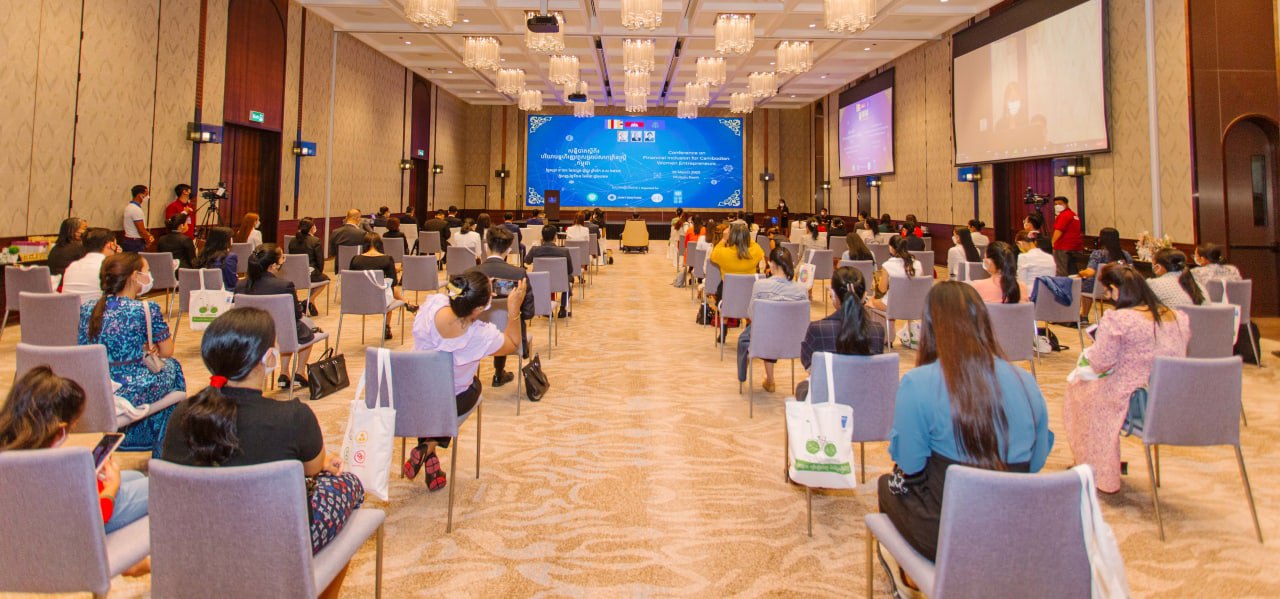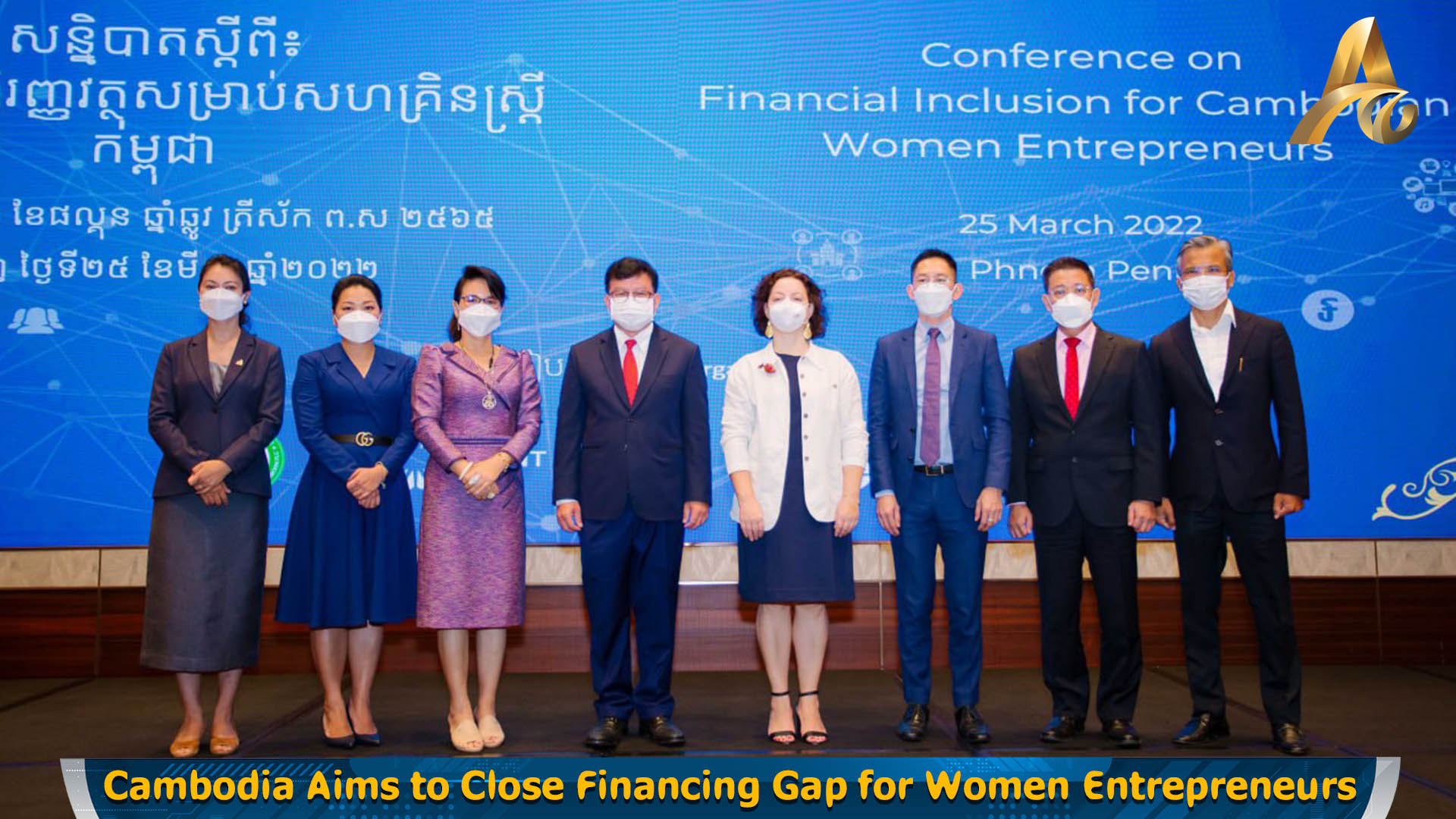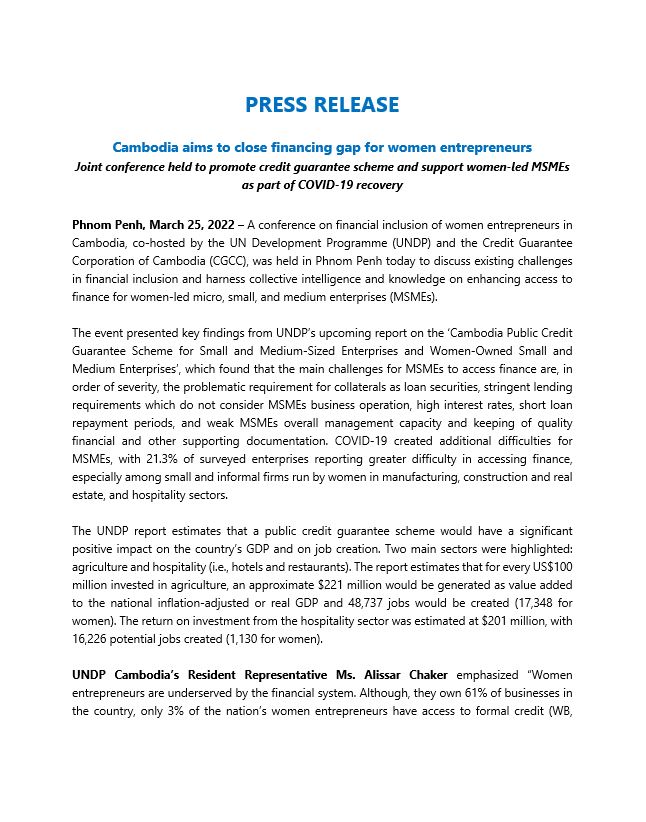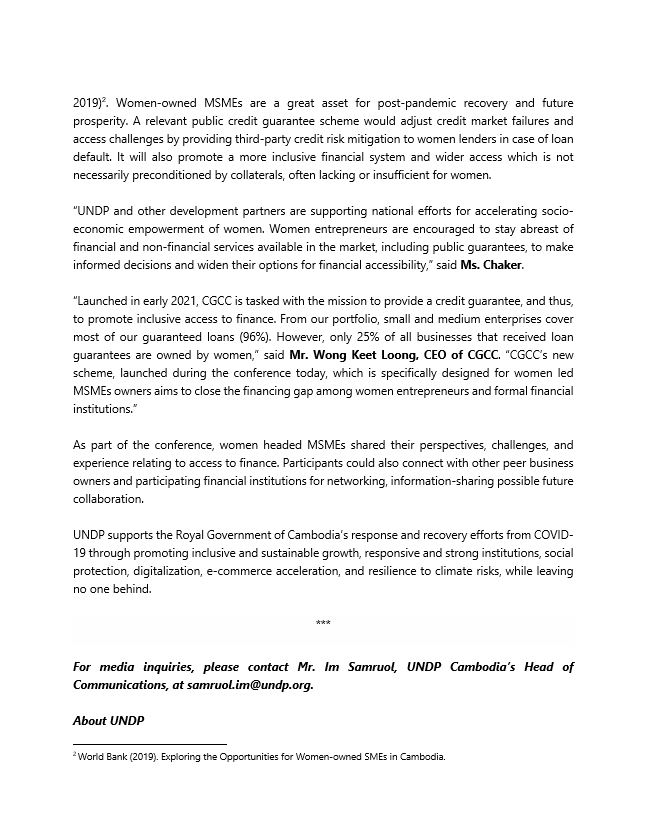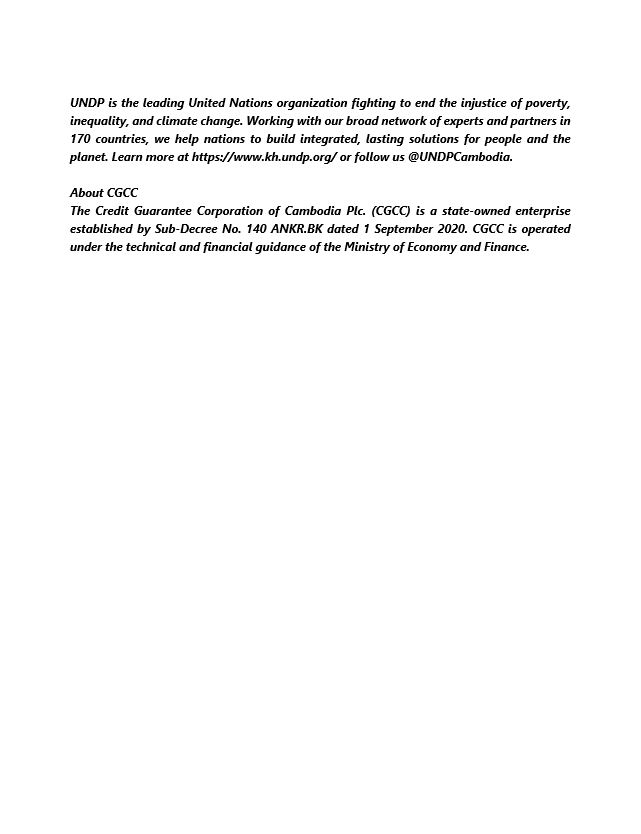PHNOM PENH: The UN Development Program (UNDP) co-hosted a conference on financial inclusion of women entrepreneurs in Cambodia, with the Credit Guarantee Corporation of Cambodia (CGCC), on Friday, 25 March. The conference discussed the existing challenges related to financial inclusion and harnessing collective intelligence and knowledge on enhancing access to finance for women-led micro, small and medium enterprises (MSMEs).
According to a press release issued by the UNDP and CGCC, during the conference, the key findings of UNDP’s upcoming report on the ‘Cambodia Public Credit Guarantee Scheme for Small and Medium-Sized Enterprises and Women-Owned Small and Medium Enterprises’ were presented. The report found that the main challenges for MSMEs regarding access finance are, in order of severity: the problematic requirement for collaterals as loan securities, stringent lending requirements which do not consider MSMEs business operation, high interest rates, short loan repayment periods, and weak MSMEs overall management capacity and keeping of quality financial and other supporting documentation.
Additionally, 21.3% of surveyed MSMEs reported facing greater difficulty in accessing finance, especially among small and informal firms run by women in manufacturing, construction and real estate, and hospitality sectors, during the Covid-19 pandemic.
According to the report, a public credit guarantee scheme is estimated to have a significant positive impact on the country’s GDP and on job creation. The two sectors of agriculture and hospitality were highlighted, and the report estimates that for every US $100 million invested in agriculture, approximately US $221 million would be generated as value added to the national GDP, and 48,737 jobs would be created (including 17,348 for women).
The UNDP Resident Representative for Cambodia, Alissar Chaker, emphasized that “Women entrepreneurs are underserved by the financial system. Although, they own 61% of businesses in the country, only 3% of the nation’s women entrepreneurs have access to formal credit. Women-owned MSMEs are a great asset for post-pandemic recovery and future prosperity. A relevant public credit guarantee scheme would adjust credit market failures and access challenges by providing third-party credit risk mitigation to women lenders in case of loan default. It will also promote a more inclusive financial system and wider access which is not necessarily preconditioned by collaterals, often lacking or insufficient for women.”
She added that the UNDP and other development partners are actively supporting national efforts for accelerating socio-economic empowerment of women.
The CEO of CGCC, Wong keet Loong, stated that the CGCC was launched in early 2021, “tasked with the mission to provide a credit guarantee, and thus, to promote inclusive access to finance. From our portfolio, small and medium enterprises cover most of our guaranteed loans (96%). However, only 25% of all businesses that received loan guarantees are owned by women.”
He continued, “CGCC’s new scheme, launched during the conference today, which is specifically designed for women led MSMEs owners aims to close the financing gap among women entrepreneurs and formal financial institutions.”
Women headed MSMEs also shared their perspectives, challenges and experiences related to access to finance during the conference. Participants were also afforded the opportunity to connect and network with other peer business owners and financial institutions.
UNDP supports the Royal Government of Cambodia’s response and recovery efforts from COVID-19 through promoting inclusive and sustainable growth, responsive and strong institutions, social protection, digitalization, e-commerce acceleration, and resilience to climate risks, while leaving no one behind.
